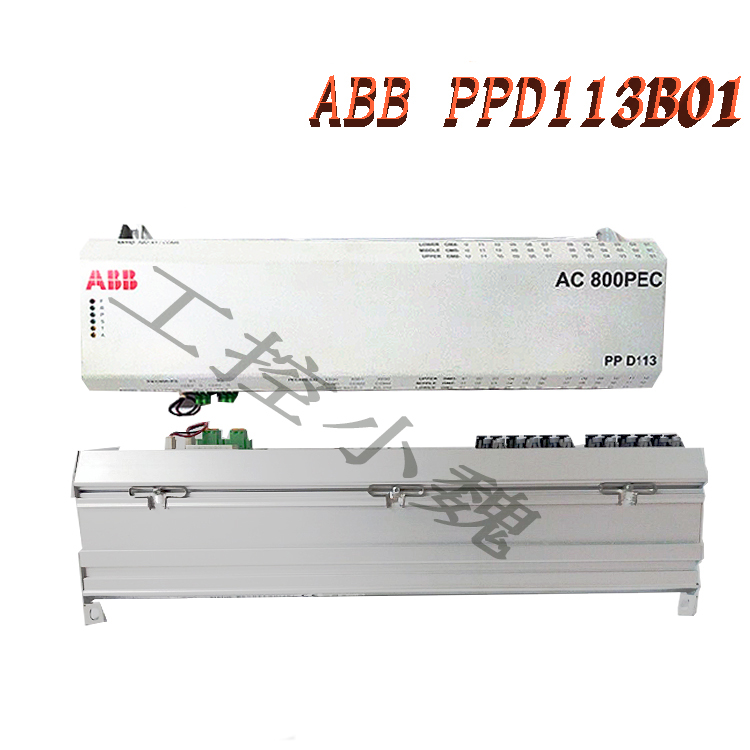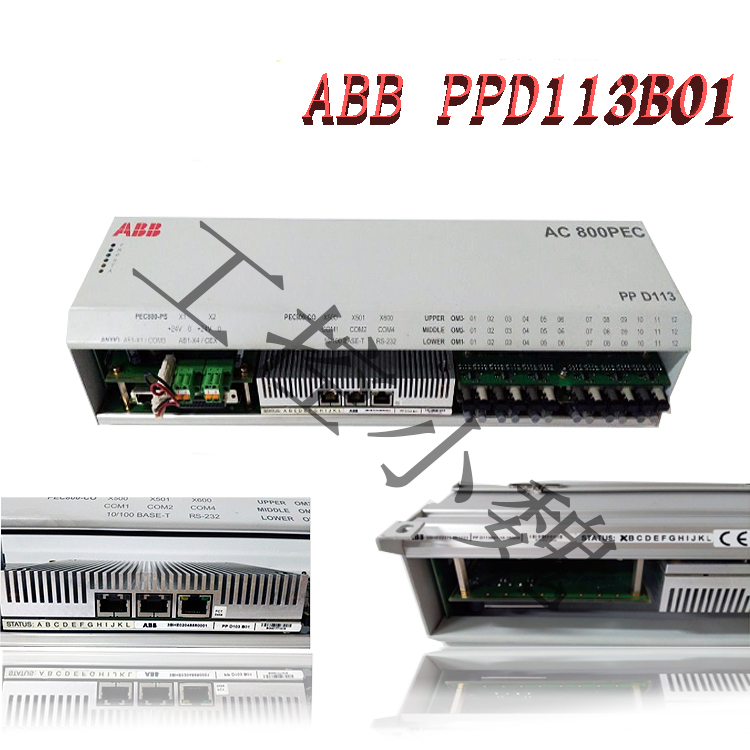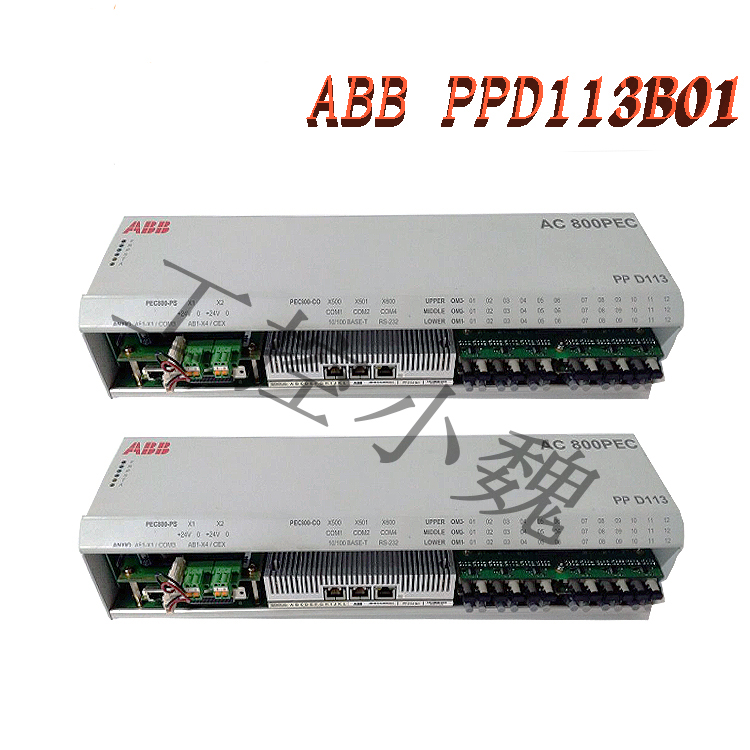ABB PPD512A10-150000 3BHE040375R1023
控制器是整个CPU的指挥控制中心,由指令寄存器IR(InstructionRegister)、程序计数器
PC(ProgramCounter)和操作控制器0C(OperationController)三个部件组成,对协调整个电脑有序工
作极为重要。下面是小编给大家整理的一 些有关介绍,希望对大家有帮助!
cpu中控制器的功能简单介绍

(一)运算器
1、算术逻辑运算 单元ALU(Arithmetic and Logic Unit)
ALU主要完成对二进制数据的定点算术运算(加减乘除)、逻辑运算(与或非异或)以及移位操作。在
某些CPU中还有专门]用于处理移位操作的移位器。

通常ALU由两个输入端和一一个输出端。整数单元有时也称为IEU(Integer Execution Unit)。我们通
常所说的"CPU是XX位的”就是指ALU所能处理的数据的位数。
2、浮点运算单元FPU(Floating Point Unit)
FPU主要负责浮点运算和高精度整数运算。有些FPU还具有向量运算的功能,另外- -些则有专门]的
向量处理单元。

3、通用寄存器组.
通用寄存器组是一组最快的存储器,脒保存参加运算的操作数和中间结果。
在通用寄存器的设计上, RISC与CISC有着很大的不同。CISC的寄存器通常很少, 主要是受了当时

硬件成本所限。比如x86指令集只有8个通用寄存器。所以, CISC的CPU执行是大多数时间是在访问存
储器中的数据,而不是寄存器中的。这就拖慢了整个系统的速度。而RISC系统往往具有非常多的通用
寄存器,并采用了重叠寄存器窗口和寄存器堆等技术使寄存器资源得到充分的利用。
对于x86指令集只支持8个通用寄存器的缺点, Intel和AMD的最新CPU都采用了-种叫做”寄存
器重命名”的技术,这种技术使x86CPU的寄存器可以突破8个的限制,达到32个甚至更多。不过,相
对于RISC来说,这种技术的寄存器操作要多出一一个时钟周期,用来对寄存器进行重命名。
Extension materials:
CPU (Central Processing Unit), also known as the central processing unit. Today, with the emergence and development of CPUs, due to the increasingly advanced manufacturing technology, their integration is becoming higher and higher, with the number of internal transistors reaching several million. Although the number of transistors has increased dozens of times since the initial development of CPU, the internal structure of CPU can still be divided into three parts: control unit, logic unit and storage unit.
The performance of the CPU roughly reflects the performance of the microcomputer it is configured with, so the performance indicators of the CPU are very important. CPU performance mainly depends on its main frequency and work efficiency.
1. Processing Instructions
Processing instructions in English refer to the order in which instructions are executed in a control program. There is a strict order between the instructions in the program, and it is necessary to strictly follow the sequence specified in the program to ensure the correctness of computer system operation.
2. Execute Action
The function of an instruction is often achieved by a series of operations performed by components in a computer. The CPU needs to generate corresponding operation control signals based on the function of the instructions, send them to the corresponding components, and control these components to act according to the requirements of the instructions.
3. Control time
Control time in English refers to the timing of various operations. During the execution of an instruction, there should be strict control over what operations are performed at any time. Only in this way can computers work in an orderly manner.
4. Processing data
That is, performing arithmetic and logical operations on data, or performing other information processing. Its main function is to interpret computer instructions, process data in computer software, and execute instructions.
Extension materials:
The Role of CPU
The internal structure of cpu can be divided into control unit, logical unit and storage unit. The working principle of a CPU is like the processing of products in a factory: the raw materials (instructions) entering the factory are dispatched and distributed by the material distribution department (control unit), and then sent to the production line (logical computing unit).
After producing the finished product (processed data), it is stored in the warehouse (storage) and finally waiting to be sold on the market (for application use). As the core of the entire microcomputer system, CPU is often synonymous with various grades of microcomputers, such as 286, 386, 486 in the past, and now Pentium, Pentium IV, K6, etc. The performance of CPU roughly reflects the performance of the microcomputer it is configured with, so its performance indicators are very important


 全国服务热线
全国服务热线



